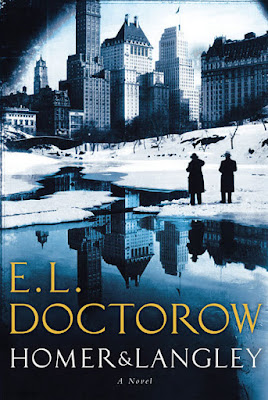Is this a re-read? Yes.
This may be the fourth time I've read this... maybe? could be the fifth? The first time I was a teen; maybe 15 or so? I suppose I could do that math, but the results would include some guess work. I was assigned The Hobbit in the 8th grade, and then I actually read The Hobbit the summer after the 8th grade. I think I read The Lord of the Rings in high school, which I borrowed from my Uncle, or.... maybe he got another copy and gave me his old one? Yes, I think that's right, those iconic 1970s paperbacks, as shown on the left.
The second time I read through them I read these same books, but after a while, they started to take a beating, and the glue binding was starting to break down. So at some point, I bought a one volume paperback edition. I did the one volume thing so I could get to the appendixes when I needed to. In the three volume versions, the appendixes only appear in the third volume, so you need to carry that around if you need it. The one volume paperback is fine, but the stresses on the glue binding are too much and its been falling apart for a while. Because of its size, its also cumbersome to read, and I eventually went out and bought a three volume set of paperbacks, which is what I read the last time through, in 2016. But the one volume is fun, I think I'm going to try and re-bind it.
After reading through this a few times, I've begun to see some of the rhythms in Tolkien's writing shining through a bit. There are some spots where he seems to be impatient to get to the next (major) point and the narrative, and doesn't provide as much of the detail of those moves are accomplished as he had in other places. I wonder if this is pressure from publishers, or a self-imposed pressure or editing on his own part. You may have heard that one of Tolkien's regrets about The Lord of the Rings is that its too short. In response to the questions and opinions of critics and others, Tolkien offers no quarter, response or apology, in his Forward to the Second Edition, but offers only this to those who have complained that the book was too long:
"The
most critical reader of all, myself, now finds many defects, minor and
major, but being fortunately under no obligation either to review the
book or to write it again, he will pass over these in silence, except
one that has been noted by others: the book is too short."
This can probably be read two ways: at face value, or as a subtle jab at his critics, which was only partly meant or facetious. After having read through a number of times, I believe Tolkien did have more story to tell, and while he may not have been referring to The Lord of the Rings specifically, I think he did see a number of his works still spinning in his head, which he was unable to get into print. Tolkien complained a number of times about not having his notes in order, and that peccadillo, along with the rigors of his non-writing life, prevented him from bringing many of those other stories to fruition. I wonder what we'd have if Tolkien had a computer. Would it have increased his productivity, and if so, would there have been a cost to that, in the quality of his work? Perhaps from a lessening of the contemplative way he wrote, and re-wrote, in longhand? mmmm...
All this to say, I believe I've said it all in other reviews of this book. I didn't break down my review this time into three chunks to correspond to the traditional three volumes, only because this is well traveled ground, both for me and for many others. I did want to get some of my thoughts down on why reading a one volume editions vs. the three volume (they both have pros and cons) and on the length of the tale itself. On that point I will add that if you are left wanting more, there is a little more in the Appendices, and I can recommend highly enough that you read them. In fact, back in 2016, when I read through all of these books the last time, as noted above, I recommended that if you are re-reading the Middle Earth books that you read the Appendices first, right after The Silmarillion, and before The Hobbit. This time I was just reading The Lord of the Rings, but I did read all of the notes in the front matter, and the Appendices at the back, before I began the body of the text.
Tolkien is a champion world-builder and creator of mythologies. The Lord of the Rings has a depth and richness that is unmatched by most of its counterparts in fantastic fiction. It still has staying power, the ability to thrill and entertain, even after multiple readings, which hasn't been dimmed by the films, in my mind at least.
Read this book.






















